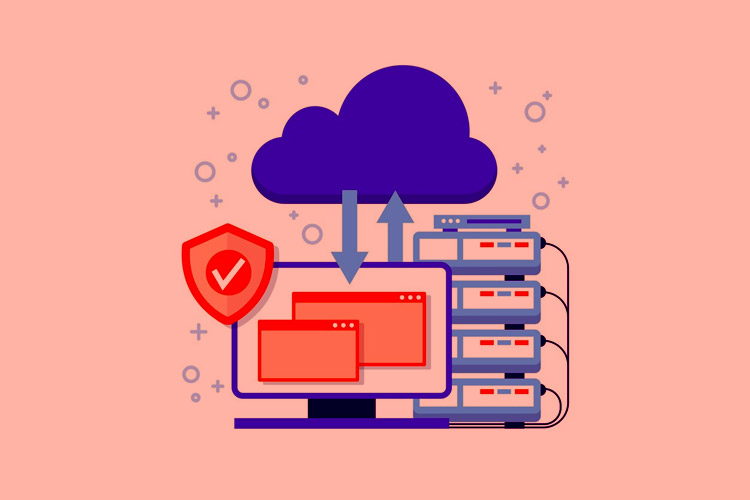As a web developer, using all the essential proxies becomes an important job role. This not only halts malicious cyberattacks but also promotes privacy of your online information. Thus, proxies impart a flexible and secure solution and tools for web developers for excellent performance. However, some still doubt its use as a web developer. Thus, in this exclusive guide, you will find all the top pros and cons of proxies in web development. So, without any further ado, let’s dive into the intricate details. But first, let’s begin with the basics!
What Are Proxies or Proxy Servers?
A proxy server acts as a barrier between the client and the server when the client requests some resources and files from it. It uses the IP address of the destination server to send the request of the client. Once the server gets the request, the client gets the response through the proxy server. So, the proxy server hides the IP address of the clients and helps in blocking the access of other parties on the internet to access the private network of the client.
A client has the freedom to pick the IP address of the proxy server from multiple locations spread across the globe. It will conceal the IP address and it will appear that the client is requesting the files and resources from a different location. Now, let us understand the pros and cons of using a proxy server for a web developer.
Pros/Advantages
Here are some of the pros of using different types of proxies like US residential proxies, SEO proxies, etc. in web development.
1. Security
One of the top advantages of using proxies in web development is enhanced security. The proxy server acts as an intermediary between your device and the internet which further improves the overall security by protecting your sensitive information like location, IP address, etc. It can filter the incoming traffic and prevent any unauthorized access to the server. In short, it allows you to create a safe environment for web development where you can enjoy higher security and integrity of the project.
2. Anonymity
Maintaining anonymity while accessing the internet for resources and information is another major advantage of using proxies in web development. The proxy server makes your real IP address and protects your device from the risk of cyberattacks like DDoS and other security breaches by hackers looking to exploit your sensitive data.
With suitable US residential proxies, you can conduct proper web scraping to collect the data without risking your overall security. You can get all the data without disclosing your identity to the cybercriminals lingering on the internet.
3. Load Balancing
With suitable load balancing proxies, you can increase the reliability and resilience of your web applications as they will able to handle the traffic fluctuations efficiently. The proxies distribute the traffic across several servers which prevents server overload. It monitors the entire network intelligently and routes the incoming requests to the least congested server for proper load balancing. This will further offer a smooth user experience to all the users of the web application.
4. Caching
With the help of suitable proxies in web development, you can optimize the speed and efficiency of you web application. The proxies will store the repeatedly used data locally, which will allow them to access it quickly without fetching it from the main server. This will further reduce the overall latency and minimize network congestion. So, you can offer a faster load time and enhanced performance to the users of your web application by using the proxies.
5. Content Filtering
Using proxies in web development gives you a better degree of control over the internet in your web application. You can enhance the overall security by controlling the traffic over the network. You can implement content-filtering policies using proxies to block access to specific websites. Proxies can interpret incoming and outgoing traffic so you can leverage their power to block malicious content and reduce the risk of potential threats.
So, in short, the usage of proxies offers a safer browsing environment, reduces exposure to cyber threats, and enhances overall network security in web development projects.
Cons/Disadvantages
No doubt there are several advantages of using proxies but there are some challenges associated with them. Here are some of the cons of using proxies in web development.
1. Latency
One of the top challenges of using proxies in web development is latency. A proxy serves acts as an intermediary layer between your delivery and the internet and every request has to pass through it to reach the destination server. This can result in latency which can become a significant issue if the proxy server is located far from your location. It can reduce the overall degree of responsiveness of the web application. So, it is essential to configure and optimize the proxy server properly to reduce the overall delay.
2. Single Point Of Failure
There is a risk of a single point of failure with using proxies in web development. If a proxy server is down in the network or it has malfunctioned then the users will not be able to use the services through your web application. So, the entire system is vulnerable to outages which can result in service interruption, especially in the web development domain.
3. Security Risks
Proxy servers offer confidentiality to the users. However, they lack robust encryption which can be an issue in today’s dynamic digital world. With the evolving technology, cybercriminals are using advanced attacks that can bypass the encryption level of the proxy server and gain access to your sensitive data. So, make sure that you take proactive actions to safeguard your data from security breaches and threats.
4. Complexity
High complexity is another notable drawback of using proxies in web development. Introducing proxies adds layers of configuration and management overhead which further increases the overall complexity of the infrastructure. Moreover, you need proper expertise and skills in configuring the setting and managing all the routine rules. If you don’t have the expertise, then you need to hire a professional which can further increase the overall cost.
Besides all this, integrating proxies into an existing system can further complicate the whole development process. The higher complexity will then lead to further issues in scalability, maintenance, and deployment of the final product.
5. Cost
Configuring a proxy server can be an expensive affair which can burn a hole in your budget if you are working with limited money. It is easy for established companies, but it can become a significant challenge for startups and small businesses to pay for the expenditure to set up everything properly.
FAQs About Proxies in Web Development
How do proxies work in web development?
Proxies act as an intermediary between both clients and servers. Their primary functions involve caching, filtering, routing, and security implementation. Given below is a step-by-step guide on how proxies work.
- The client initiates a web page request via HTTP or HTTPS request.
- Request interception by Proxy through specific proxy configurations.
- Proxy evaluates the request as per predefined rules and configurations.
- Proxy quickly forwards its request to the Server.
- The server processes the request to generate a response.
- Response then, gets intercepted by Proxy.
- Proxy quickly evaluates the response.
- After that, the Proxy forwards the response to the client.
- Finally, the client receives the response.
Why would I use a proxy in web development?
When developing different web solutions, a proxy acts as an extra layer of data security. It helps in protecting the users from different malicious online activities.
What types of proxies are commonly used in web development?
Given below are different types of proxies commonly used in web development.
- Forward Proxy
- Reverse Proxy
- API Proxy
- Residential Proxy
- HTTPS Proxy (SSL/TLS Proxy)
- Load balancer
- Anonymous Proxy
- ISP Proxy
- Data Center Proxy
- Transparent Proxy
The Final Verdict
When building secure and reliable web solutions, proxies play a pivotal role in enforcing high security and privacy in web development. Now that you are well aware of all the top pros and cons of using proxies in web development, it is time to start researching all the necessary proxies that will play a vital role in your project. We hope this guide helped clear all your doubts and enable you to embrace using proxies in different web development projects.
Read more:
Image source: Freepik



